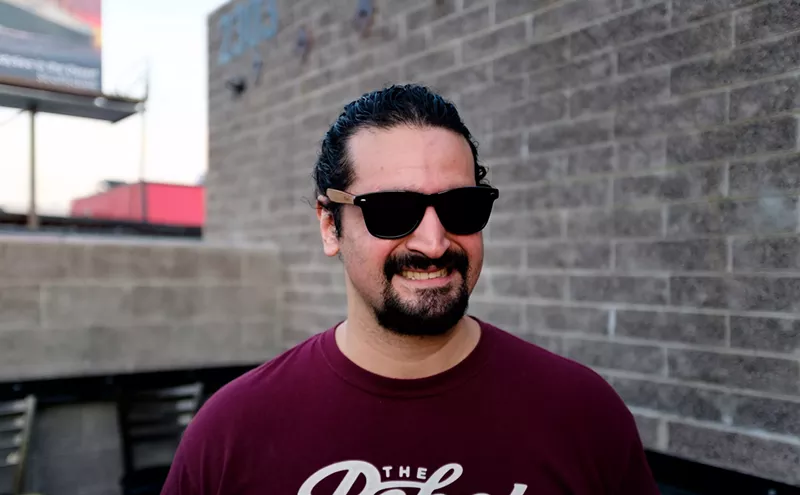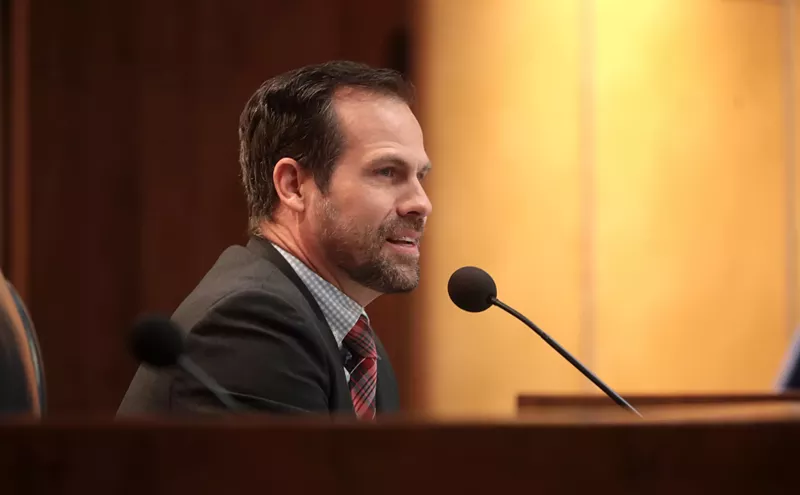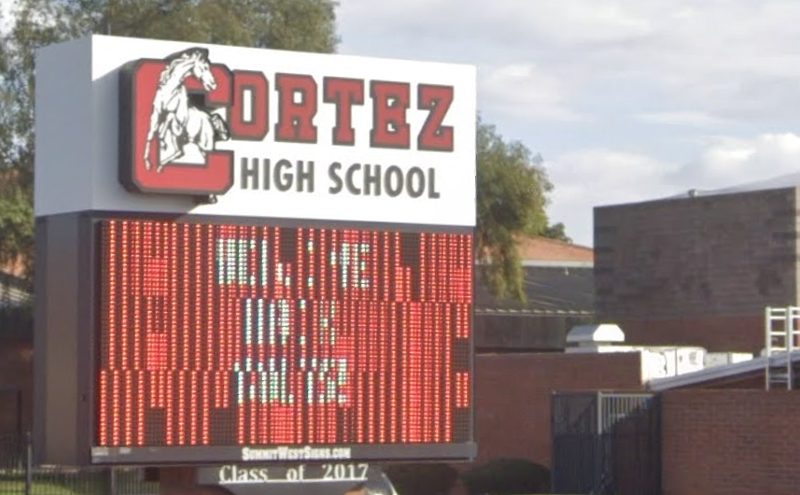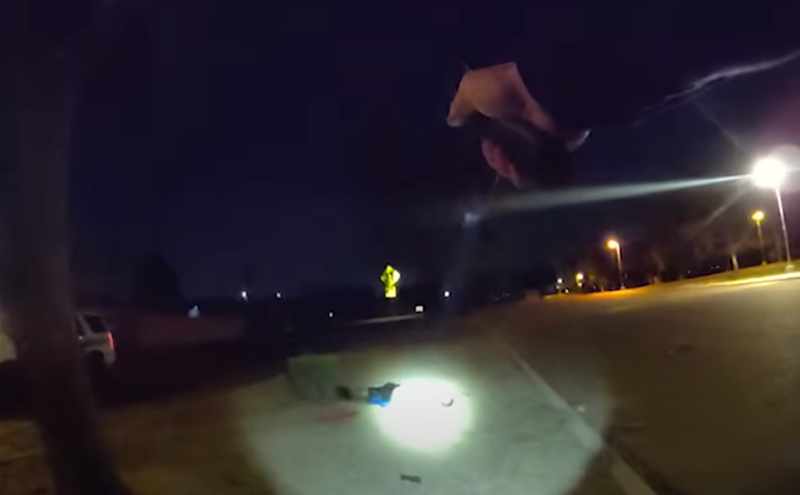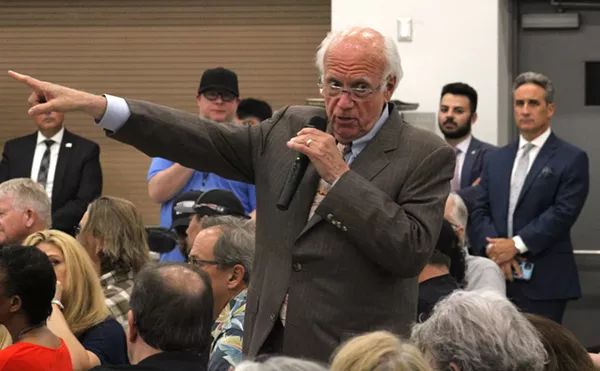Let’s say that you’re reading a story in the Phoenix New Times about some idiotic (and likely unconstitutional) new bill that the state legislature has proposed.
You call up your local representatives and complain for as long as they’ll listen. They tell you to log into the legislature’s Request to Speak system to add your name to the list of citizens opposing the bill. That way, even if you can’t make it to the committee hearing to testify in person, you can make sure that your views get heard.
All jazzed up about democracy, you head over to the website and sign up for an account. “How great is that?” you think to yourself as you picture sitting at home in your pajamas and watching TV while simultaneously weighing in on proposed legislation. “Arizona is doing something right for once.”
Then you get a message telling you that in order to activate your account, you’ll have to go to the state capitol in Phoenix or the legislative offices in Tucson in person.
Live in a rural area? Have limited mobility? Unable to leave work during the hours that the offices are open? Too bad.
It’s hard to know exactly how many people have been left out of the legislative process this way. After all, the system only tracks people who do activate their accounts.
Sam Richard, the executive director of the Protecting Arizona’s Family Coalition, says that roughly 450 people signed up to register their opposition to HB 2404, which would impose additional regulations on petition circulators. It is one of several bills designed to hamper the citizen initiative process.
“We know that there are many more people that have thoughts on this issue than just those 450,” he says. “The question becomes: Are they passively against it, or are they against it but were shut out of the process? And I would argue that it’s the latter more than anything else.”
A handful of organizations that are regularly involved in lobbying efforts at the Capitol, including PAFCO, the Children’s Action Alliance, and the local chapter of the NRA, will activate accounts for people who can’t make it to Tucson or Phoenix. But they can’t reach everyone.
“If there’s someone who wants to get engaged in the legislative process but isn’t involved in one of those groups, you’re kind of out of luck and that’s a disappointing feature,” Richard says. “But I’ll speak on behalf of my interns: we would have to be happy to activate anyone who signed up via the request-to-speak website.”
Similarly, Senator Jamescita Peshlakai, who represents the Navajo Nation, says that her staff will activate the accounts of any constituents who aren’t able to travel to Phoenix or Tucson in person.
But why is the system set up in this way in the first place?
Well, according to Michael Braun, the executive director of the Arizona Legislative Council, it wasn’t originally intended to be used as a way to measure popular opinion. Initially, it was just supposed to give committee chairs a way to figure out who had signed up to give live testimony at a hearing.
It’s only recently that he’s started getting calls from people who don’t understand why they have to go to the Capitol in person just to register a yes-or-no position on a bill.
“It was pretty quiet up until this year,” he says. “We’ve gotten some of what I think you’d call complaints and some comments — some people think we may not realize that it’s set up this way.”
There’s not much he can do about it, though, other than to tell callers that they should let their legislators know that they want the system changed.
And he points out that if the system ends up becoming fully remote, that will bring up other concerns.
For instance, how can you be sure that the person registering a position on a bill actually lives in Arizona… or the United States, for that matter?
The system currently only asks for a name and e-mail address, and doesn’t require users to verify their identify. So if you want to sign up for an account as Kanye West and start voting down bills that would restructure the firefighters’ pension system, then, well, that’s your personal choice.
But there are ways around that problem. For instance, Nextdoor.com, a site that hosts neighborhood-specific forums, has users verify their addresses by mailing them a postcard with a unique code on it and requiring them to enter that code before they can use the site for the first time.
Sam Richard of PAFCO points out that regardless of what the original intention was, the request-to-speak system has become a popular way for everyday citizens to let legislators know how they feel about specific bills that are on the agenda.
“Maybe it’s time to rethink how that operates, and have a solution in place for January 2018 and the next legislative session,” he offers. “That would help restore some integrity in the legislative process.”

Audio By Carbonatix
[
{
"name": "GPT - Billboard - Slot Inline - Content - Labeled - No Desktop",
"component": "21251496",
"insertPoint": "2",
"requiredCountToDisplay": "2"
},{
"name": "STN Player - Float - Mobile Only ",
"component": "21327862",
"insertPoint": "2",
"requiredCountToDisplay": "2"
},{
"name": "Editor Picks",
"component": "16759093",
"insertPoint": "4",
"requiredCountToDisplay": "1"
},{
"name": "Inline Links",
"component": "17980324",
"insertPoint": "8th",
"startingPoint": 8,
"requiredCountToDisplay": "7",
"maxInsertions": 25
},{
"name": "GPT - 2x Rectangles Desktop, Tower on Mobile - Labeled",
"component": "21934225",
"insertPoint": "8th",
"startingPoint": 8,
"requiredCountToDisplay": "7",
"maxInsertions": 25
},{
"name": "Inline Links",
"component": "17980324",
"insertPoint": "8th",
"startingPoint": 12,
"requiredCountToDisplay": "11",
"maxInsertions": 25
},{
"name": "GPT - Leaderboard to Tower - Slot Auto-select - Labeled",
"component": "17012245",
"insertPoint": "8th",
"startingPoint": 12,
"requiredCountToDisplay": "11",
"maxInsertions": 25
}
]


